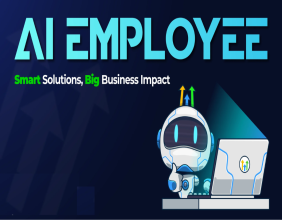Highlights
- Unprecedented AI capabilities redefine complex research
- Blockchain-level source credibility enhances report accuracy
- Rapid generation of well-documented analyses reshapes digital inquiry
In the rapidly evolving artificial intelligence industry, groundbreaking models are transforming how complex challenges are addressed across various sectors. Similar to industry leaders in the resource sector, the advancements in AI have brought forward sophisticated tools that redefine research and analytical processes. Among these innovative solutions, Deep Research emerges as a state-of-the-art tool that has pushed the boundaries of AI-generated content and analytical precision. Its breakthrough performance across multiple subjects and domains signals a significant shift in how academia, industry, and strategic operations approach data processing and interpretation.
Cutting-Edge Performance Metrics
Deep Research distinguishes itself by achieving remarkable performance on standardized assessments designed to test the limits of AI proficiency. The tool has registered impressive scores on comprehensive examinations that span more than a thousand subjects. Its performance markedly surpasses earlier models, showcasing a leap in language understanding and analytical depth. By outperforming previous iterations, Deep Research demonstrates a level of precision and speed that positions it at the forefront of artificial intelligence evolution.
Superior Analytical Speed and Depth
One of the standout features of Deep Research is its ability to generate extensive, well-sourced reports in a fraction of the time required by previous systems. In a demonstration that captured industry attention, the tool produced a detailed, multi-thousand-word analysis on the implications of new international tariffs, referencing numerous credible sources. This rapid turnaround does not compromise the depth of analysis; rather, it underlines the tool’s capacity to integrate vast amounts of data into coherent, logically structured outputs. The acceleration of report generation promises to transform sectors where timely access to accurate data is critical.
Enhanced Source Credibility and Verification
Deep Research incorporates advanced algorithms that prioritize credible sources and provide transparent citations. This meticulous approach to source verification plays a crucial role in mitigating the risk of erroneous or unverified data. The tool’s methodology involves cross-referencing multiple sources and employing blockchain-like immutable records for citation, ensuring that every claim is backed by verifiable evidence. This method of rigorous documentation helps to build trust in AI-generated reports and provides a framework for higher accountability in digital research.
Innovative Language Processing Capabilities
At the heart of Deep Research is the o3 language model, which underpins its superior performance in processing and understanding complex queries. The model leverages advanced machine learning techniques to parse intricate language structures, enabling it to address topics that range from technical academic inquiries to sophisticated industry analyses. Its capacity to discern nuances in language ensures that the generated content is not only factually accurate but also contextually relevant. The evolution from previous models has resulted in outputs that reflect a deeper comprehension of subject matter and a refined ability to synthesize information.
Operational Efficiency in Report Generation
The operational efficiency of Deep Research is a testament to the advancements in computational power and machine learning algorithms. The tool’s ability to produce long, detailed reports swiftly is underpinned by optimized data processing pipelines and parallel computing strategies. By streamlining the data extraction and synthesis processes, Deep Research reduces the time between data input and actionable output. This efficiency has wide-reaching implications, particularly in fields that require rapid turnaround times for complex data analyses, such as academic research and industry-specific reporting.
Integration with Modern Digital Ecosystems
Deep Research is designed to integrate seamlessly with existing digital infrastructures. Its API and modular architecture allow for easy incorporation into broader research and analytical platforms. Such interoperability ensures that organizations can harness the capabilities of Deep Research without overhauling existing systems. The flexibility in integration supports diverse applications, ranging from automated report generation to real-time data analysis, thereby enhancing the overall efficiency of digital workflows across multiple sectors.
Robust Data Security and Ethical Safeguards
In addition to its analytical prowess, Deep Research places significant emphasis on data security and ethical practices. Advanced encryption protocols and secure data handling practices are integral to its operation, ensuring that sensitive information remains protected during the research process. The tool’s commitment to ethical data usage is reflected in its transparent citation practices and adherence to stringent data governance standards. By maintaining rigorous security measures, Deep Research provides a reliable framework for organizations that require both high-performance analytics and robust data protection.
Implications for Academic and Industry Research
The introduction of Deep Research marks a turning point in how complex inquiries are approached in both academic and industry contexts. Its ability to rapidly synthesize large volumes of data into coherent analyses offers a significant advantage for researchers who must navigate vast and disparate sources of information. In academic settings, the tool facilitates deeper insights by breaking down complex subjects into manageable segments and providing clear, well-documented evidence for every claim. Similarly, in industry contexts, the capacity to quickly generate detailed analyses enables companies to respond to emerging challenges with agility and precision.
Transforming the Landscape of Digital Inquiry
Deep Research not only advances the technical frontiers of artificial intelligence but also redefines the framework of digital inquiry itself. By merging speed, depth, and source credibility into a single tool, it sets a new benchmark for AI-generated research. The tool’s performance signals a future where automated systems are capable of rivaling the analytical capabilities traditionally associated with human researchers. This evolution represents a fundamental shift in how complex analyses are conducted and disseminated, with far-reaching implications for academic scholarship and industry research alike.
A Paradigm Shift in Automated Analysis
The advancements embodied by Deep Research are a testament to the rapid progress in the artificial intelligence field. Its superior performance metrics, combined with its operational efficiency and robust security measures, illustrate a significant paradigm shift in automated research capabilities. By providing detailed, well-sourced reports at unprecedented speeds, Deep Research is reshaping the standards for digital analysis and report generation. This transformation heralds a new era in which advanced AI models are not only capable of processing complex queries but also of delivering actionable insights that drive forward the frontiers of knowledge and operational efficiency.
Deep Research encapsulates the potential of artificial intelligence to revolutionize the processes of data synthesis, verification, and report generation. Through its innovative use of advanced language models, emphasis on source credibility, and operational efficiency, the tool sets a new standard for AI-driven analysis. As the artificial intelligence industry continues to advance, the impact of such sophisticated tools is poised to redefine how information is processed and utilized across academic and industrial domains, marking a significant milestone in the evolution of digital research methodologies.




